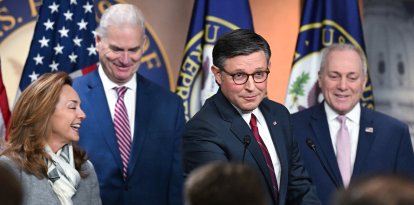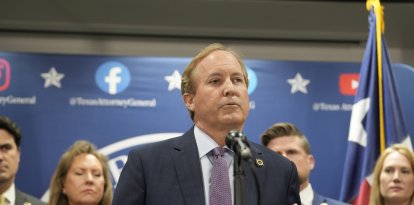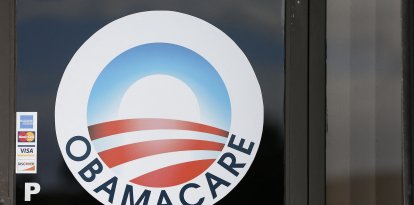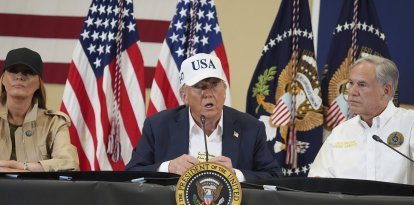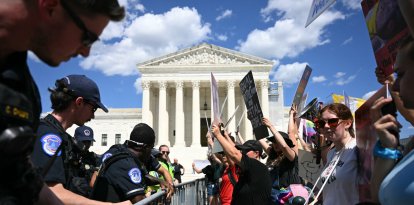What are Hispanics asking the future president to do?
Controlling the cost of living and housing, addressing immigration, and ending criminal violence are the priorities for this key demographic in the upcoming election.
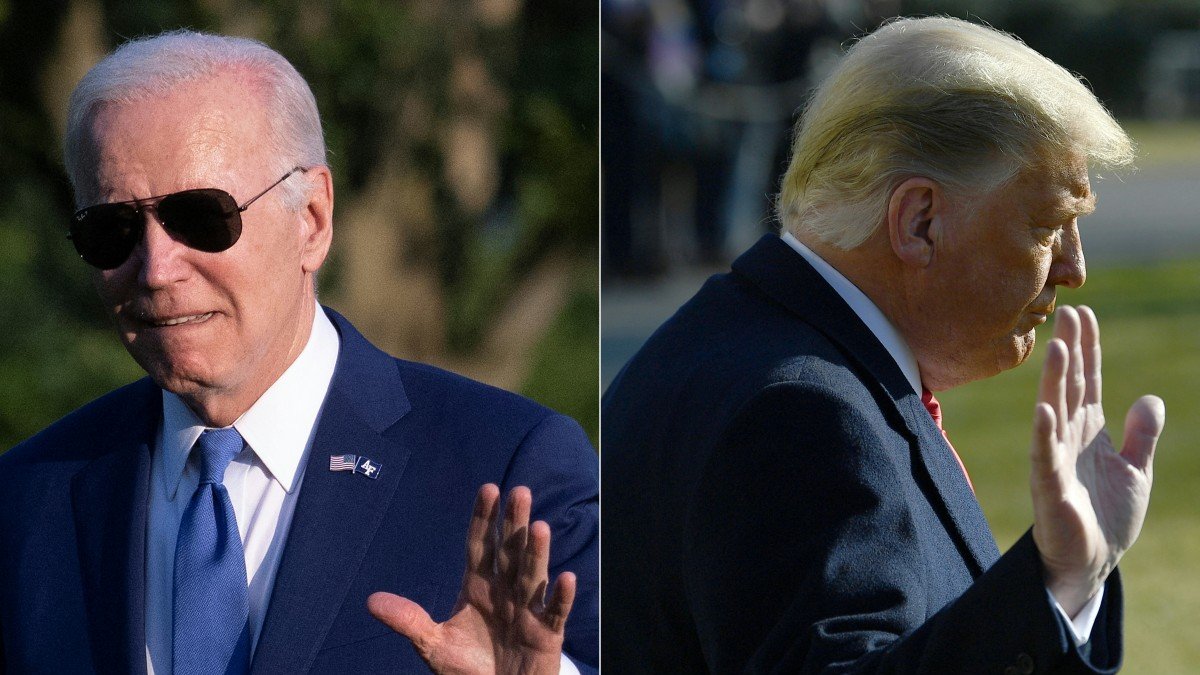
AFP
Hispanic voters knows they will be instrumental in determining who will be the next president and are clear about what they want from the person who will occupy the oval office come November. A poll released just before the first presidential debate of the campaign indicates that the priorities of the second-largest group of eligible voters are controlling the cost of living and housing, better management of immigration - including the prosecution of coyotes- and putting an end to criminal gun violence.
This is reflected in a poll published by the Latino organization UnidosUS, released last Wednesday, a day before Donald Trump and Joe Biden starred in their first face-to-face meeting. The poll aims to reflect the concerns and desires of the 36.2 million Hispanics who may go to the polls in November, of which projections suggest that at least 17.2 million will cast their vote for one candidate or the other.
Latino voters are sending a wake-up call to not be taken for granted. To win their votes, candidates need to do serious outreach, with a clear picture of how their plans match up with these voters’ priorities – inflation and the cost of living, wages, immigration and the border, affordable housing and gun violence.
On the premise that "Hispanic voters will be a decisive factor in 2024, and with 1 in 5 voting in a presidential election for the first time," Martinez de Castro called on the candidates "to present their proposed solutions to these concerns and show the traits that Latino voters want to see: Someone who brings people together, who has realistic policy solutions and will compromise to get things done."
Economy, the top concern for Hispanics
The economic situation is again the main concern for Hispanics, most of whom expressed feeling "stressed" about their financial situation and making ends meet. In this regard, their main complaint is controlling the cost of living and, in particular, housing costs. Two aspects in which Biden's policies are not proving particularly effective, since he is barely achieving a slight cooling of inflation while house prices -and rents- remain at record highs.
In fact, a Bienvenidos survey from mid-June indicates that Hispanics have lost faith in Bidenomics because of how the economy's performance is affecting them. Among the main complaints are the increase in part-time contracts and, especially, the fact that "these statistics paint a stark picture of an economy that is not working for the American people. Under Bidenomics, families are struggling with soaring housing costs, surging electric bills, and high gas prices. The data is clear: the current administration's policies are failing to deliver the economic stability and growth that Americans need and deserve."
Hispanics Support Trump's Immigration Policies
On immigration policies, Trump's proposals appear to be more in line with respondents' hopes. Especially on the main point for this community (82%), the persecution of the coyotes and Mexican cartels that are getting rich by smuggling people across the border. In addition, recent polls showed that a large majority of Latinos (57%) support Trump's plan to deport illegal immigrants.
In addition, this demographic expressed a desire for the next president to prioritize "providing a pathway to citizenship for long-term undocumented immigrants (53%) and DACA recipients (42%). A second tier of priorities includes cracking down on human traffickers (29%), increasing border security (28%) and increasing legal immigration through family and employment-based visas (27%).
End school shootings
Finally, Hispanics expressed interest in controlling gun violence. In this regard, the top issue to address is limiting "too easy" access to firearms (63%) and for authorities to end school shootings (52%). On the latter part, "Latino voters especially want a response that includes mental health and counseling programs, safe entry and identity checks and gun reforms, such as universal background checks."













